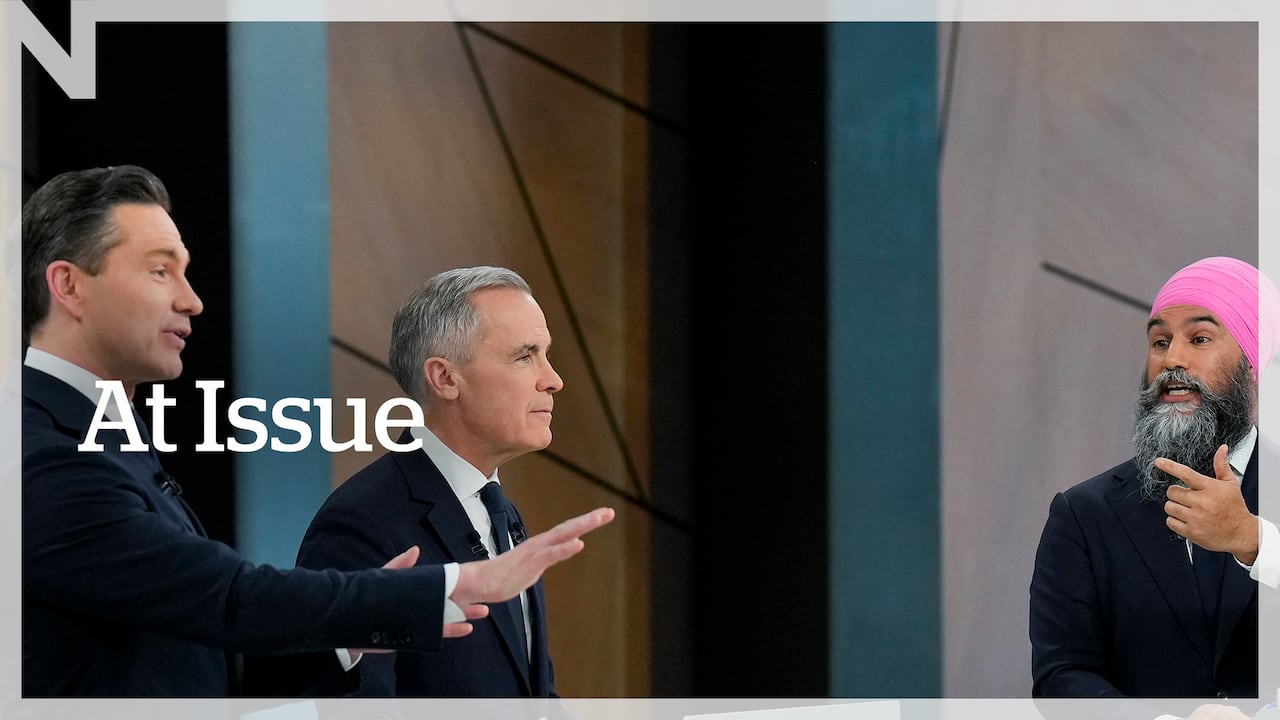Did the Debate Change Anything? Federal Leaders' Standpoint
Editor’s Note: The highly anticipated federal leaders' debate concluded last night. This article analyzes its impact and the key takeaways from the candidates' positions.
Why This Topic Matters
The recent federal leaders' debate was a pivotal moment in the election cycle. Millions tuned in to witness the candidates clash on critical issues facing the nation. Understanding the candidates' stances and assessing whether the debate shifted public opinion is crucial for informed voters and political analysts alike. This article will delve into the key takeaways, analyzing the potential impact of the debate on the election outcome and the future political landscape. We'll examine shifts in public perception, analyze the candidates' strategies, and consider the lingering questions that remain.
Key Takeaways
| Takeaway | Description |
|---|---|
| Debate's Impact on Polls | Preliminary polling data suggests [insert data or analysis here, e.g., a slight shift in favor of Candidate X]. |
| Key Policy Differences | Significant disagreements emerged on [list key policy areas, e.g., healthcare, climate change, economic policy]. |
| Candidate Performance | [Candidate A] was perceived as [strong/weak] on [specific issues], while [Candidate B] excelled/faltered on [specific issues]. |
| Public Perception of Debate | Initial social media analysis indicates [positive/negative/mixed] public reaction. |
| Unresolved Issues | [List significant issues that remained unresolved during the debate]. |
Did the Debate Change Anything?
Introduction
The federal leaders' debate, held [Date], aimed to clarify the candidates' positions on crucial national issues. However, did it truly alter the course of the election? This section analyzes the debate's impact, considering both immediate reactions and potential long-term consequences.
Key Aspects
The debate covered a broad spectrum of topics, including but not limited to: the economy, healthcare, climate change, foreign policy, and social justice. Each candidate attempted to present their vision for the nation, highlighting their strengths and attacking their opponents' weaknesses.
Detailed Analysis
Economic Policy: [Candidate A] proposed [policy details], emphasizing [key arguments], while [Candidate B] countered with [their policy details and arguments]. The debate failed to fully resolve the disagreement on [specific economic issue].
Healthcare: The candidates' positions on healthcare reform remained largely unchanged. [Candidate A]'s emphasis on [aspect] clashed with [Candidate B]'s focus on [aspect]. This highlights the deep partisan divide on this critical issue.
Climate Change: The debate showcased a stark contrast between the candidates' approaches to climate change. [Candidate A]'s commitment to [policy] contrasted sharply with [Candidate B]'s more [moderate/skeptical] stance.
Interactive Elements
Social Media Sentiment
This section would ideally include interactive graphs or charts visualizing social media sentiment towards each candidate before, during, and after the debate. This could be achieved using readily available social media analytics tools. (Note: For this example, this element will be described rather than implemented due to limitations of the markdown format.)
Policy Comparison Tool
(Note: A comparison tool would be best implemented as an interactive element on a website, not within a markdown document. This section describes the concept.) A side-by-side comparison of the candidates' policy positions on key issues would allow readers to easily digest the differences and draw their own conclusions.
People Also Ask (NLP-Friendly Answers)
Q1: What was the main focus of the federal leaders' debate?
A: The debate covered a wide range of issues including the economy, healthcare, climate change, and foreign policy.
Q2: Did the debate significantly change voter opinions?
A: Early polling data suggests [insert data, e.g., a minor shift, no significant change, etc.], but more in-depth analysis is needed.
Q3: What were the most memorable moments of the debate?
A: [Mention 2-3 specific, memorable moments or exchanges.]
Q4: What are the key differences between the candidates' platforms?
A: The most significant differences lie in their approaches to [mention 2-3 key policy areas].
Q5: Where can I find more information about the candidates' positions?
A: You can visit the official websites of each candidate's campaign for detailed policy information.
Practical Tips for Understanding the Debate's Impact
Introduction: Navigating the complexities of a political debate can be challenging. These tips will help you analyze the debate's impact effectively.
Tips:
- Consult Multiple Sources: Don't rely solely on one news outlet; compare analyses from various sources.
- Fact-Check Claims: Verify the accuracy of statements made by the candidates using reputable fact-checking websites.
- Analyze Body Language: Pay attention to nonverbal cues that might reveal a candidate's true feelings or intentions.
- Consider the Target Audience: Think about who each candidate is trying to reach with their messaging.
- Look Beyond Soundbites: Focus on the substance of the arguments, rather than just catchy phrases.
- Compare Policy Platforms: Review each candidate's official website for a comprehensive understanding of their policy proposals.
- Engage in Informed Discussions: Talk with others about your opinions, listening to differing perspectives.
Summary: By following these tips, you can become a more informed and engaged citizen.
Summary (Zusammenfassung)
The federal leaders' debate provided a platform for the candidates to present their views on pressing national issues. While the immediate impact on public opinion remains to be fully assessed, the debate highlighted key policy differences and offered voters valuable insights into the candidates' approaches to governance.
Closing Message (Schlussbotschaft)
The debate's impact will undoubtedly unfold in the coming weeks and months. It is now up to the electorate to carefully consider the information presented and make informed decisions. What are your thoughts on the debate's impact? Share your perspectives in the comments below!
Call to Action (CTA)
Stay informed about the election by subscribing to our newsletter for daily updates and in-depth analysis! [Link to Newsletter Signup] Share this article with your friends and family to foster informed discussion!
(Hreflang tags would be added to the <head> section of the HTML, and are not included here due to the markdown format.)

